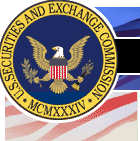 Ahmed Idris Nasreddin
Ahmed Idris Nasreddin
On August 29, 2002, OFAC designated various entities owned by Ahmed Idris Nasreddin, thereby blocking all assets of those entities and forbidding U.S. citizens and companies from dealing with those entities. The basis for the designation was a finding that Nasreddin was a “supporter of terrorism.” The press release supporting the designation stated:
Based on information available to Italy and the United States, … Ahmed Idris Nasreddin (“Nasreddin”), through commercial holdings, operate[s] an extensive financial network providing support for terrorist related activities.
OFAC didn’t disclose what information linked Nasreddin to terrorism, but other sources suggest that Nasreddin finances a mosque in Milan, Italy, which is the major station of Al-Qaeda in Europe and that, among other things, the Al-Qaeda operatives involved in the 1998 embassy bombings stayed at the Mosque
One of the blocked Nasreddin entities was Akida Bank Private Limited, about which the OFAC press release said:
Nasreddin, who serves as Akida Bank’s president, also serves on the board of directors of Akida Bank along with Youssef Nada. According to corporate documents, the Nasreddin Foundation, an entity proposed for designation, owns an overwhelming majority of shares of Akida Bank, affording Ahmed Idris Nasreddin and the Nasreddin Foundation ownership and control of Akida Bank.
That was then; this is now:
The following deletions have been made to OFAC’s SDN list:
AKIDA BANK PRIVATE LIMITED (a.k.a. AKIDA INVESTMENT CO. LTD.; a.k.a. AKIDA INVESTMENT COMPANY LIMITED), c/o Arthur D. Hanna & Company, 10 Deveaux Street, Nassau, Bahamas, The; P.O. Box N-4877, Nassau, Bahamas, The [SDGT]
A number of other Nasreddin entities designated in 2002 were also deleted from the SDN list.
The accompanying Federal Register notice is completely opaque as to the reasons for deletion, stating only:
The Department of the Treasury’s Office of Foreign Assets Control has determined that these individuals and entities no longer meet the criteria for designation under the Order and are appropriate
for removal from the list of Specially Designated Nationals and Blocked Persons.
There isn’t an OFAC procedure for former supporters of terrorism to absolve themselves simply by claiming that they’ve renounced terrorism or seen the light. I suppose that a change in ownership of the designated entities might be grounds for removal from the SDN list, but there is no suggestion here that Nasreddin divested his control of these entities.
Instead the deletion must be a concession that the original designation was mistaken. And needless to say, OFAC isn’t particularly interested in revealing why it was mistaken in the first place, although you would think that such an explanation would be in order here, particularly where there had been allegations that Nasreddin was financing the major Al-Qaeda station in Europe.
 In an earlier post, we noted that License Exceptions TMP and BAG’s “tools of the trade” exception might allow temporary export of laptops and the software on it, but that this exception did not cover technical data. Today the Bureau of Industry and Security (“BIS”) amended its rules to permit the export of technology — which would include technical data on dual-use items — under the TMP and BAG license exceptions.
In an earlier post, we noted that License Exceptions TMP and BAG’s “tools of the trade” exception might allow temporary export of laptops and the software on it, but that this exception did not cover technical data. Today the Bureau of Industry and Security (“BIS”) amended its rules to permit the export of technology — which would include technical data on dual-use items — under the TMP and BAG license exceptions.
 Posted by
Posted by  Category:
Category: 

 The Securities and Exchange Commission
The Securities and Exchange Commission 
 A battle is being
A battle is being  Last week, on October 31, the Office of Foreign Assets Control issued a
Last week, on October 31, the Office of Foreign Assets Control issued a 

